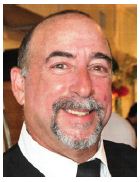By JOEL S. SLOTNICK
On June 27, 1969— almost 43 years ago— something happened to change the lives of many. It’s known as the Stonewall riots. (I call it the Stonewall Uprising.) In a June 22, 2009 posting, The Leadership Conference wrote, “This Sunday, June 28, will mark the 40th anniversary of the Stonewall riots, the event largely regarded as a catalyst for the LGBT movement for civil rights in the United States. The riots inspired LGBT people throughout the country to organize in support of gay rights, and within two years after the riots, gay rights groups had been started in nearly every major city in the United States.”
At the time, there were not many places where people could be openly gay. New York had laws prohibiting homosexuality in public, and private businesses and gay establishments were regularly raided and shut down. In the early hours of June 28, 1969, a group of gay customers at a popular gay bar in Greenwich Village called the Stonewall Inn, who had grown angry at the harassment by police, took a stand, and a riot broke out. As word spread throughout the city about the demonstration, the customers of the inn were soon joined by other gay men and women who started throwing objects at the policemen, shouting “gay power.”
Police reinforcements arrived and beat the crowd away, but the next night, the crowd returned, even larger than the night before, with numbers reaching over 1,000. For hours, protesters rioted outside the Stonewall Inn, until the police sent a riotcontrol squad to disperse the crowd. For days following, demonstrations of varying intensity took place throughout the city.
In the wake of the riots, intense discussions about civil rights were held among New York’s LGBT people, which led to the formation of various advocacy groups such as the short-lived Gay Liberation Front, which was the first group to use the word “gay” in its name, and a city-wide newspaper called Gay.
On the first anniversary of the Stonewall Riots, the first gay pride parades in U.S. history took place in Los Angeles, Chicago, San Francisco, and near the Stonewall Inn in New York. The Stonewall riots inspired LGBT people throughout the country to organize in support of gay rights, and within two years after the riots, gay rights groups had been started in nearly every major city in the United States.
Here we are in 2012. Be honest. If you went around Pride events and questioned people about its history, how many could actually tell you? Since Stonewall, generations of our LGBT seem to have forgotten, or chose to put aside, what the riots were about, and what they did to clear the way for the freedoms we enjoy to this day.
Over the years, “Pride” has been celebrated with events worldwide. Some festivities last a weekend, a week, or even a month. There are parades, big and small. In some cases, it has turned into a circuit party, and a chance for some businesses and/or, individuals to capitalize off a once-great but diminishing history. Yes, I said it.
In the next decade, most if not all of those who fought in the Stonewall riots will be gone. Who will carry on the history of June 27, 1969? If we don’t start to remember why it got us, as LGBT persons, to where we are today, we may not have much of a tomorrow. Maybe it is time to think what we want the history of Stonewall to record. Will it be about our PRIDE, or about a party? If you don’t know the answer to this one, maybe you’ve been Stonewalled.
Joel S. Slotnick is a former Secretary- Treasurer for Pride of South Florida, and a longtime LGBT activist. He lives in Fort Lauderdale.






